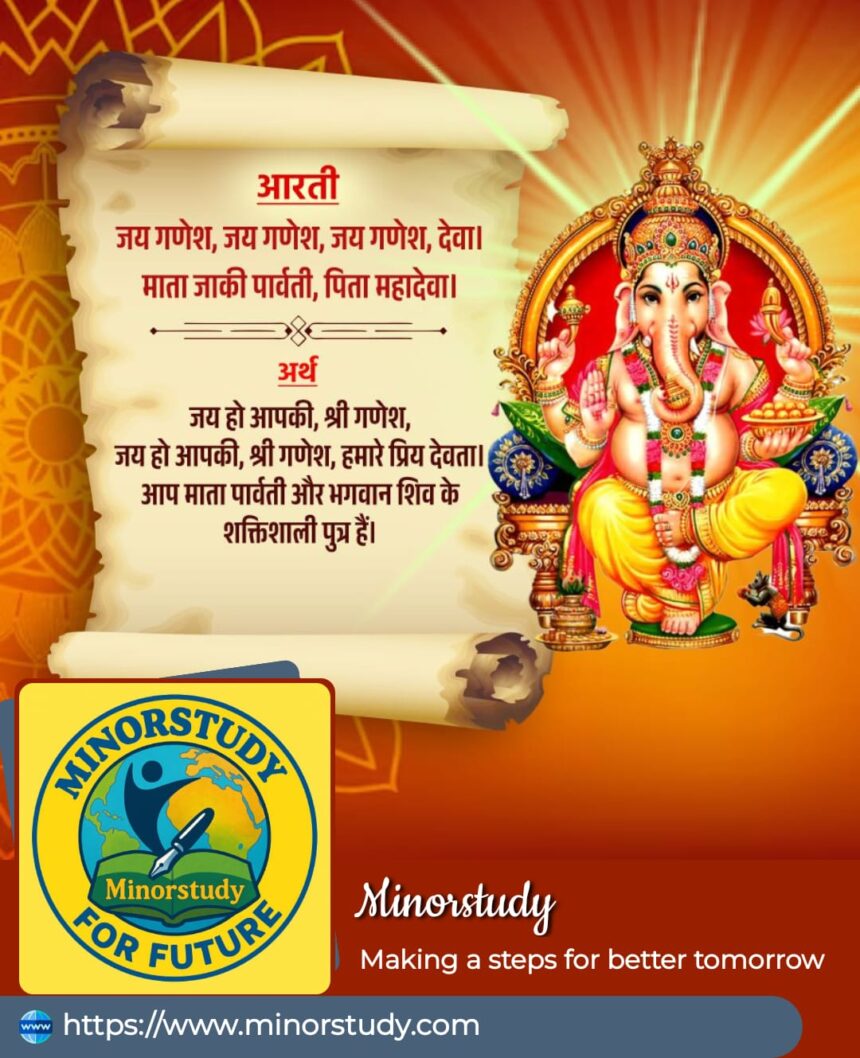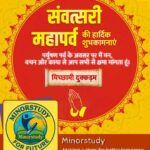Jai Ganesha Aarti Brings Positive Energy in Life
Introduction
“Jai Ganesha, Jai Ganesha, Jai Ganesha Deva. Mata Jaki Parvati, Pita Mahadeva.”
This simple yet deeply meaningful verse is the opening line of the famous Aarti of Lord Ganesha, sung with devotion in temples and homes across India. The Aarti is not just a song of praise; it is an expression of faith, surrender, and love toward Lord Ganesha, who is revered as the remover of obstacles and the giver of wisdom, prosperity, and protection.
- Meaning of the Aarti Lines
- History of the Aarti
- Timeline of Jai Ganesha Aarti Tradition
- Facts About Jai Ganesha Aarti
- Significance of Jai Ganesha Aarti
- Daily Life Impacts of Singing Jai Ganesha Aarti
- Importance in Society
- Observance of Jai Ganesha Aarti
- Wishing Messages Inspired by Jai Ganesha Aarti
- FAQs on Jai Ganesha Aarti
- Conclusion
In this article, let us explore the meaning, history, significance, facts, daily life impacts, FAQs, and the spiritual essence of this sacred Aarti.
Meaning of the Aarti Lines
Aarti Line:
👉 “Jai Ganesha, Jai Ganesha, Jai Ganesha Deva”
Meaning: Glory to you, O Lord Ganesha, divine God, remover of obstacles.
Aarti Line:
👉 “Mata Jaki Parvati, Pita Mahadeva”
Meaning: Your mother is Goddess Parvati, and your father is Lord Shiva, the great Mahadeva.
✨ In essence, the Aarti reminds us of Ganesha’s divine parentage and His role as the first deity to be worshipped before starting anything auspicious.
History of the Aarti
The Aarti tradition in Hinduism goes back thousands of years. The word Aarti comes from the Sanskrit “Aratrika,” meaning to dispel darkness. Lighting the lamp before a deity and singing praises symbolizes removing ignorance and inviting divine wisdom.
The Jai Ganesha Aarti specifically is believed to have been composed during the medieval Bhakti movement, a time when saints encouraged devotion through simple songs in local languages. Over centuries, this Aarti became one of the most widely sung prayers dedicated to Lord Ganesha, especially in Maharashtra during Ganesh Chaturthi celebrations.
Timeline of Jai Ganesha Aarti Tradition
Ancient Times – Worship of Ganesha as “Vighnaharta” (remover of obstacles) mentioned in Rigveda and Puranas.
Medieval Period (12th–15th Century) – Rise of Bhakti saints who composed devotional songs, including Aartis.
18th–19th Century – Popularization of Ganesha worship in public by social reformer Lokmanya Tilak.
Modern Times – Jai Ganesha Aarti sung daily in homes, schools, and temples; central to Ganesh Chaturthi celebrations worldwide.
Facts About Jai Ganesha Aarti
It is usually sung at the end of Ganesha Puja.
The melody is simple, making it easy for children and elders alike.
It is one of the few Aartis memorized by almost every Hindu household.
It is performed with lit lamps, incense, flowers, and offerings.
The Aarti is sung not only in temples but also in schools, offices, and festivals.
In Ganesh Chaturthi, lakhs of devotees sing it daily for 10 days.
The repetition of “Jai Ganesha” creates a positive vibration that calms the mind.
Significance of Jai Ganesha Aarti
Removes Obstacles: Chanting invokes Ganesha, who clears difficulties.
Brings Prosperity: Associated with wealth, wisdom, and success.
Invokes Divine Blessings: The Aarti is an offering of gratitude.
Cleanses the Mind: The repetition and melody uplift emotions.
Strengthens Family Bonds: Singing together creates unity.
Connects Tradition & Modern Life: A link between ancient devotion and present-day spirituality.
Universal Appeal: Even non-Hindus often sing it during celebrations.
Daily Life Impacts of Singing Jai Ganesha Aarti
Morning Positivity: Singing Aarti sets a peaceful tone for the day.
Stress Relief: The rhythm and faith reduce mental tension.
Confidence Booster: Belief in Ganesha’s blessings helps face challenges.
Cultural Connection: Keeps younger generations connected to roots.
Spiritual Growth: Builds humility, discipline, and gratitude.
Importance in Society
The Aarti is more than a religious chant; it plays a role in social harmony. During Ganesh Chaturthi, millions gather regardless of caste or status to sing the same Aarti, symbolizing unity and equality. It promotes collective joy, strengthens community spirit, and spreads positive vibrations in society.
Observance of Jai Ganesha Aarti
Sung during Ganesh Chaturthi (10-day festival).
Part of daily puja rituals in many homes.
Recited during special occasions like weddings, new beginnings, and festivals.
In schools and organizations, sung to seek blessings for knowledge and success.
Wishing Messages Inspired by Jai Ganesha Aarti
🌸 “May Lord Ganesha, son of Shiva and Parvati, bless you with wisdom and happiness. Jai Ganesha Deva!”
🌸 “Wishing you the strength to overcome obstacles and the light of knowledge in your life. Jai Ganesha!”
🌸 “On this day, may the divine Aarti of Ganesha fill your home with positivity and peace.”
FAQs on Jai Ganesha Aarti
Q1. Why is Lord Ganesha worshipped before other deities?
Because He is “Vighnaharta,” the remover of obstacles, ensuring smooth beginnings.
Q2. Can non-Hindus sing Jai Ganesha Aarti?
Yes, the Aarti is universal and focuses on positivity and devotion.
Q3. When is the best time to sing this Aarti?
Morning and evening puja, but especially during Ganesh Chaturthi.
Q4. Is there a specific way to perform Aarti?
Yes, usually with a lit lamp, circular motion in front of the deity, accompanied by clapping and chanting.
Q5. What is the spiritual benefit of repeating “Jai Ganesha”?
It invokes divine vibrations, removes negative energy, and calms the heart.
Conclusion
The Jai Ganesha Aarti is not just a prayer; it is a living tradition that connects millions of people to faith, culture, and spirituality. Its meaning—honoring Lord Ganesha as the son of Parvati and Shiva—reminds us of divine family values and the importance of wisdom, strength, and devotion in life.
By singing this Aarti daily, we invite positivity, remove obstacles, and strengthen our spiritual journey. It has the power to impact individuals, families, and society at large by spreading unity and joy.
✨ So the next time you sing “Jai Ganesha, Jai Ganesha, Jai Ganesha Deva,” remember—you are not just reciting words, but opening the door to peace, prosperity, and divine blessings.








